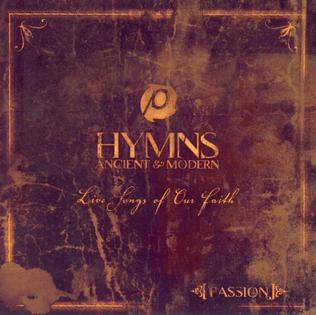This week is our final week of hymn singing. Our hymns this week are hymns of the Resurrection. Our two bumper hymns Tuesday will be the ancient hymn “All Glory Laud and Honor” and “Here I Am Lord.”
The first hymn we are singing this week is “All Glory Laud and Honor” which is the traditional processional hymn sung for Palm Sunday. The hymn was written by Theodulf, Bishop of Orléans, in about 820. Theodulf was an Italian and was made bishop by Charlemagne in about 785. Charles died in 814 and was succeeded by his son, Louis. Louis imprisoned Theodulf in the monastery at Angers in 818 where he died in 821. Theodulf wrote the hymn while in prison. The medieval church used this hymn to re-enact the story of Jesus’ triumphal entry as part of their standard Palm Sunday liturgy. The priests and inhabitants of a city would process from the fields to the gate of the city, following a living representation of Jesus seated on a donkey. When they reached the city gates, a choir of children would sing the hymn (in Latin), and the refrain was taken up by the crowd. At this point, the gates were opened and the crowd made its way through the streets to the cathedral. The hymn can be heard in the original Latin HERE. The current tune was composed by the Lutheran Melchior Teschner in about 1613 and was included in the first edition of “Hymns Ancient and Modern” is 1860.
The final hymn we will sing is “Here I Am Lord.” This hymn allows us to end our hymn singing with the great commissioning. The hymn is based on 1 Samuel 3 and Isaiah 6. It was written by Dan Schutte, a Roman Catholic Jesuit in 1981 as part of the Catholic renewal movement. The unusual characteristic of this hymn is the change in point of view that the singer makes between the stanzas and the refrain. The stanzas speak from the perspective of the all-powerful God in the first person singular, while the refrain is from the first-person perspective of the singers of the hymn offering their lives to God. This is a hymn of transformation. God transforms the darkness into light in stanza one, melts “hearts of stone” with love in stanza two, and then nourishes the “poor and lame” with the “finest bread”—a clear Eucharistic reference. Our transformation occurs when we accept the commissioning.
Yesterday someone sent me their favorite re-imagining of the traditional hymn, Holy, Holy, Holy. Please take a listen.
Dinner is a 6. The menu is Oktoberfest. Singing begins about 6:45. Hope to see you here. Please bring a friend.
On that fair day of Paschal joy
Ambrose of Milan (340-397)
The sunshine was without alloy,
When to their very eyes restored
They looked upon the risen Lord.
The wounds before their eyes displayed
They see in living light arrayed,
And that they see they testify
In open witness fearlessly.
O Christ, the King of gentleness,
Our several hearts do Thou possess,
They we may render all our days
Thy meed of thankfulness and praise.

